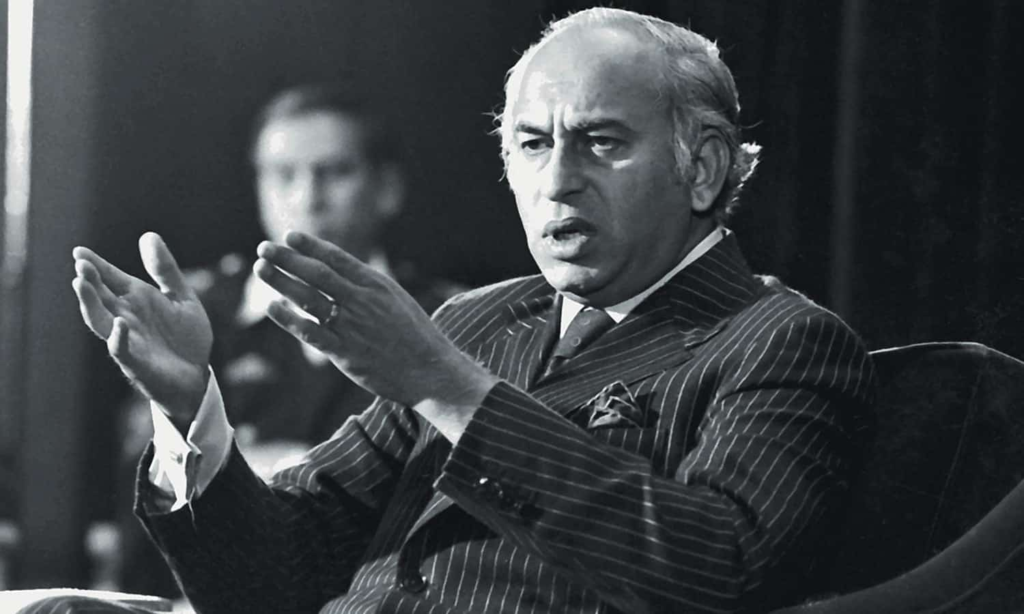
On April 4, 1979, Bhutto was assassinated after being convicted of the murder of his political rival. Today marks the 45th death anniversary of the founder of PPP.
April 4 marks the 45th anniversary of the death of Zulfiqar Ali Bhutto, the founder of the Pakistan People’s Party (PPP). On April 4, 1979, authorities hanged Bhutto at Central Jail in Rawalpindi after Gen. Zia-ul-Haq confirmed the sentence for murder charges. Bhutto, who was from Sindh, had a significant role in shaping Pakistan’s political landscape.
History and Contributions of Bhutto
Born on January 5, 1928, in Larkana, Bhutto was the son of Sir Shahnawaz Bhutto. His father served as the prime minister of the princely state of Junagarh. After completing his education at the University of Southern California and Oxford, Bhutto initially started his career as a lawyer before moving into politics. He served in various government roles, including as a cabinet member under President Iskandar Mirza. And later, he also worked as the foreign minister under General Ayub Khan.
In 1967, Zulfiqar Ali Bhutto left General Ayub’s regime and started his own party, the Pakistan People Party (PPP). He became very popular among people because he talked about their basic needs like food, clothes, and homes. This made a lot of people support him, and he gained victory in the 1970 general elections.
Also See: JDC G. Secretary, Zafar Abbas Received Tamgha-e-Imtiaz
During his tenure as prime minister, Zulfiqar Ali made big changes. He introduced significant reforms, including the enactment of Pakistan’s first constitution in 1973, land reforms, and labor laws. Bhutto also started major projects such as the nuclear program and the establishment of Pakistan Steel Mills.
Despite his efforts to uplift the nation, Bhutto’s policy of nationalizing industries faced criticism from various quarters. Eventually, he was convicted of the murder of his political rival, Nawab Mohammad Ahmed Qasuri, and was assassinated in 1979.
